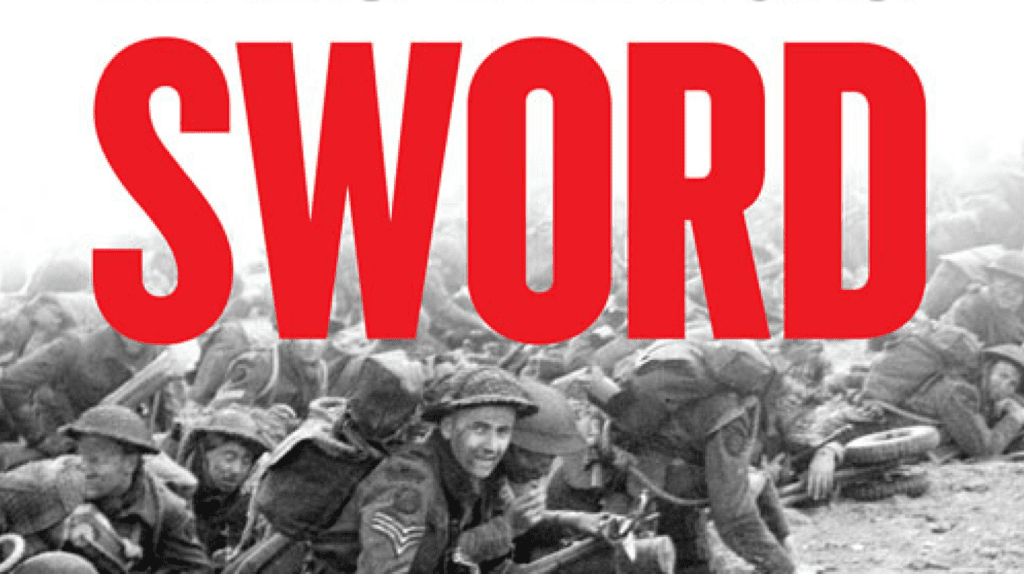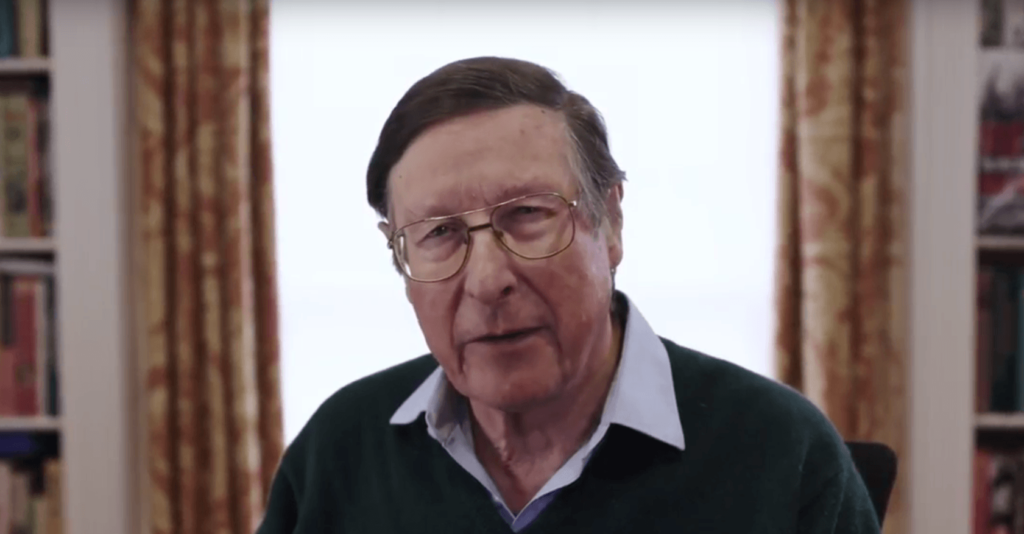In a clearing within a Belgian wood on an overcast November morning, raindrops from a recent shower dripped off the trees. A motor-cycle despatch rider approached a British battery commander, saluted and presented a message envelope. The officer tore it open and read: ‘Hostilities will cease at 11am today. No firing will take place after this hour’.
Stunned, almost disbelieving, the gunner sat down upon a stump, and surrendered his mind to snapshots of the past four years, most of them showing dead faces: ‘Hugh was gone, and Tyler and little Rawson; Sergeant Powell, that brave old man; Elliott and James and Johnson’.
He wrote later in the third person ‘This was the very end. What good had it all been ? To serve what purpose had they all died ? For the moment he could find no answer. The brain was too numb with memories’.
The question which harrowed that soldier on what became Armistice Day 1918 has challenged mankind ever since. Amid our awe at the scale of the tragedy and loss created by the First World War, some delusions have entered modern British folklore which the best efforts of the period’s wisest historians have failed to dislodge, through the four years of commemorations that have taken place since 2014.
We know that the conflict was the world’s bloodiest until Hitler’s war proved worse. It remains the most costly in Britain’s experience. Yet the Russians, French, Germans and even Serbs lost far more dead. It is a delusion to suppose that it represented a uniquely dreadful military experience. Any veteran of Rome’s Carthaginian campaigns, the Thirty Years’ War, Napoleon’s campaigns and perhaps above all the US Civil War would mock the notion that the experiences of the Somme or Passchendaele were worse.
All wars between armies of approximately equal capabilities are ghastly for those obliged to expose their flesh to storms of steel. In the world’s 19th Century conflicts, again and again men confronted each at almost point-blank range, inflicting frightful carnage in encounters such as the survivors were obliged to endure again and again.
It is curious that the French continue to revere Napoleon, who in his 1812 Russian campaign was responsible for over 400,000 of his own soldiers’ deaths. Meanwhile the British, as a nation, recoil from the memory of Field-Marshal Sir Douglas Haig, who in the First World War presided over butchery that was neither more nor less admirable.
One of my own relations, Major Lewis Hastings, who won an MC in Flanders, wrote to me in 1963, when I was working as an apprentice researcher on the BBC TV Great War series. After reading an account of the Waterloo campaign, said Lewis, he was convinced that Passchendaele and the Somme, which he survived, were no worse: ‘Those three days in 1815 were as full of mud and blood and horrors and blunders as our own agonies’.
Wellington’s army’s on 18 June suffered roughly the same proportionate losses as Haig’s formations on the first day of the Somme. Lewis fulminated against a newspaper article he had just read, which asserted that in 1916 ‘all the good and brave and the potential leaders were annihilated, and apparently on the first day ! Frightful as the Somme was, British fortitude and capacity for sacrifice were not written off’.
The truth acknowledged by everyone who knows anything about history is that all conflict generates unspeakable horrors. Death inflicted by a spear or sword plunged into a man’s entrails, severing a limb or slashing deep into a face, is surely no less hideous than the same end imposed by bomb or bullet. If medical treatments available to the wounded of 1914-18 were imperfect, they were a hundred times better than those of the nineteenth century, and a thousand-fold improvement on earlier times.
What changed in the First World War was not the timeless tragedy of massed killings of young men, but instead the replacement of the illiterate and often brutish professional warriors of past ages by citizen soldiers, some of whom used their formidable articulacy to describe what they experienced to postwar generations, with an unprecedented frankness and vividness.
Civilians clad for an unwelcome season in khaki bore witness far more sensitively than had their stoic forebears of Agincourt and the Peninsula. Moreover, because the Western Front moved so little between November 1914 and August 1918, the periodic surges of energy that both sides expended upon offensives, each of which subsided into failure on much the same stretches of blood-soaked earth, conferred upon military operations a special sense of pointlessness.
Many modern people ask about the belligerents: ‘why did they keep attacking ?’. A partial answer is that one of the struggle’s most grotesque aspects was that the higher rose the mountains of dead, the more vital it seemed to rival national leaders to secure something that they could characterise as victory.
This was especially true for Germany’s military leaders, who had plunged their country into the abyss amid the dismay of the Socialist majority in the German parliament. Falkenhayn, the Kaiser’s 1915-16 supreme commander, observed idiotically in 1914: ‘even if we lose this war, it will be wonderful to have taken part’.
By the end of 1917, such fantasists were disabused. Germany’s generals knew that if their army was seen to be vanquished, their own power, caste, polity were doomed.
London, Paris and Berlin shared the view that an allied victory in 1919 was all but inevitable, because by that date, there would be four million American troops in France.
For the Germans, this calculation meant that they must win soon, or never. For the British and French, the challenge was to survive that year unbroken, amid a flood of German reinforcements from the East, released by the Russians’ retirement from the war following the treaty of Brest-Litovsk.
On the allied side, politicians were haunted by fears that the Bolshevism which had swept away the established order in war-weary Russia might do the same in war-weary Britain, France, Italy. Indeed, from 1917 until the late 1930s, fear of Lenin’s creed and acolytes remained far stronger among most ruling classes than fear of fascism, with consequences that we know.
Throughout the campaigns of 1918, allied governments were looking fearfully over their shoulders at restless masses on the Home Front, their worsening alienation reflected in scores of strikes by industrial workers.
European allied rulers saw themselves engaged in a race to end the war before discontent at home became outright revolt. A critical factor in keeping domestic peace, they believed, was to contain casualties at the front: they wanted no more Sommes or Passchendaeles,
Then, in March 1918, Ludendorff launched his huge gamble, ‘the Kaiser’s battle’ which almost collapsed the allied front, and cost Haig’s armies 78,000 casuaties- as many men as constitute today’s entire British Army- before petering out.
The aid of the French Army was indispensable, in averting absolute British defeat. France’s Marshal Ferdinand Foch, who was belatedly appointed allied supreme commander amid the March crisis, was a far more considerable soldier than some British histories acknowledge.
Foch recognised, as did neither Haig nor Petain, the central importance of the looming accession of American manpower. He prevented Haig from launching a premature counter-offensive, instead skilfully planning and preparing the series of co-ordinated attacks that began in July 1918, and swept on to final victory.
In the summer and autumn the British displayed unprecedented tactical skill and imagination, above all in the use of artillery. Haig’s army- which had started the war as an imperial gendarmerie rather than a host fit for a continental war, fielding just fifty-two battalions amid the eleven hundred apiece deployed by France and Germany- became exemplarily professional by the finish. Many of the worst commanders and least adequate staff officers had been killed or removed, to be replaced by younger and on the whole cleverer men, who harnessed technology to great effect.
Far too many horrors and slaughters had gone before, for anyone to feel minded to celebrate the British Army’s 1918 successes, but successes and even triumphs their last battles assuredly were.
Many people in the 21st century have convinced themselves that almost everybody who fought in France, who went over the top at the Somme or Ypres, perished. The truth was far more nuanced. About one of eight of all the men who served in the British Expeditionary Force between 1914 and 1918 perished, a proportion terrible enough, but scarcely a genocide. Casualties were overwhelmingly concentrated in the infantry, becoming lower among engineers and artillerymen (excepting forward observers) and almost negligible among those fulfilling service and support functions.
Attrition, so much derided as a strategic concept, was not a myth: German 1917 casualties at Passchendaele were almost as ghastly as those of the allies: that battle contributed significantly to the erosion of the Kaiser’s army, which eventually precipitated its collapse. Lewis Hastings wrote to me: ‘though I know beyond peradventure that our chaps in 1918, especially after the great German attacks in March and April, were on the whole below the heroic standards of the British armies of 1916, they were still capable of inflicting upon the German army in August, September and October the greatest defeats in its history, capturing more prisoners than the French, Belgians and Americans put together…This is always forgotten’.
At the insistence of the Americans, and explicitly President Woodrow Wilson, in November 1918 the Germans were granted an armistice- a truce- rather than being required to sign the capitulation which their predicament made militarily inescapable. Moreover, their country escaped both significant physical war damage and occupation by allied forces, excepting only the Rhineland. In these decisions- probably historic blunders- were created the foundations of the later Nazi claims that Germany had suffered a ‘stab in the back’ by socialist and communist revolutionaries, rather than true defeat.
Wilson’s unilateral parley with the German government enraged the European allies, and especially prime minister Lloyd George. It reflected both the president’s arrogance and his conviction that European imperialism presented a graver threat to the new world order he sought to create than did German militarism.
Paris and London felt grudgingly obliged to accept Wilson’s notorious ’14 Points’ of principle, as a basis for ending hostilities.
But Adam Tooze has written: ‘If the French and British had understood how close to the precipice of disintegration Germany stood, they could easily have derailed Wilson’s coup. Within days the revolutionary avalanche would have left Germany completely unable to resist a further military advance’. As it was, the Americans, last comers to the conflict, were able to decree terms for its conclusion that spared Germany from outright battlefield humiliation.
It is impossible to view the First World War as other than a colossal calamity for mankind, but it also seems mistaken to view it as futile, from Britain’s standpoint, any more than all wars in all ages represent vast tragedies of wasted lives and resources.
If the Kaiser’s Germany had triumphed, the consequences would have been grievous not only for the British Empire, but for freedom and democracy in Europe. This is no less true, because Hitler’s Germany had to be fought all over again, a generation later.
A host of British soldiers endured one of the most terrible experiences in modern history. The deaths of almost 700,000 of them contributed to an outcome which gives their descendants no more cause to celebrate than their grieving relatives felt in 1918. Yet they saved their country from a worse fate- possibly a longer and more disastrous war- that would have accompanied a German victory on the continent.
In some places along the front, killing persisted until the very hour of the damp November morning a century ago, that was decreed for the armistice. Near Mons a German machine-gunner fired off his last belt then, at exactly 11am, rose from his trench, doffed his helmet, bowed towards the British lines, and disappeared.
The British gunner officer whom I described at the outset, among tens of thousands of local commanders who received the order to cease fire, hailed a subaltern: ‘Mr.Straker’.
‘Sir!’.
‘You can fall the men out for breakfast. The war is over’.



